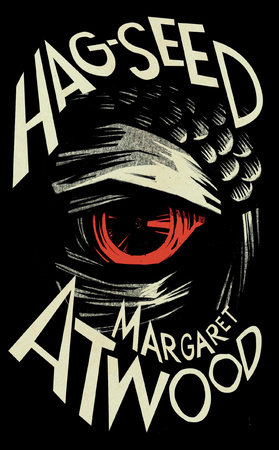Did I like it? I think so. I was entertained. The writing and the story are compelling; I zipped through. I wish I knew Shakespeare better.I'm humming a little. Softly. Just to myself. A tune I heard somewhere, can't remember where from, but it's lovely. It comes easily to my lips, and I don't usually sing. My lips are usually pressed together, bearing the weight of myself.
Also, my big toe hurts. When I think about it, the pain in my toe, it throbs, like my mind can actively make it pulsate. I palpate the toe, but I can't find the focal point for the pain, not at the edge of the nail, not the pad, not in the bone, but the pain hangs on a thread that winds its way through my body to my brain. I'm sure the pain is a direct result of this book, like I metaphorically dropped it on my foot, and it's much bigger and heavier than I believed it to be.
All's Well, by Mona Awad, is weird. Like Bunny was weird.
[I read Bunny almost exactly two years ago on a beach at Lake Tahoe, and any chance I could, while on a retreat with colleagues. I'd rather escape into the bullying clique-mindedness of campus life than engage in the Marketing department's labyrinth of in-groups, the obligatory assigned dinners, the feigned fun. "If you don't know everybody's name and understand what they do by the end of the week, then you're doing it wrong." Bunny was perfect.]
I never wrote about Bunny. It was too easy a read. Fluid and natural. There was nothing particularly quotable about it. It was funny and deep, and rich with insight into human character, but in a way that was easily processed; it never stopped me in my tracks. I actually mean this as high praise. It's so seamless, and entertaining and weird, you don't notice how good it is.
I feel the same way about All's Well. I am also struck by the witchery, and trickster energy, that my summer consists of — the fiction I read is full of it, I am subconsciously choosing it, I want to be guided by it, to learn how to exorcise parts of my past, or transmute certain experiences, or embrace my goddess nature, shed the chrysalis.
Her boot tips rest at my head, stopping short just of my temple. She could raise her boot and stomp on my face if she wanted to. Probably a small part of her does. Because that's what you do with the weak, and Grace comes from Puritan stock, a witch-burning ancestry. Women who never get colds. Women who carry on. Women with thick thighs who do not understand the snivelers, the wafflers, people who burn sage.
The plot has Miranda staging of one of Shakespeare's problem plays, All's Well That Ends Well, even while her students clearly want to perform Macbeth. Themes from both plays permeate Miranda's reality, and their characters cross over, but I can't help but wonder if her Shakespearean name isn't also pointing us to The Tempest, with its dreamlike and patriarchal elements.
I felt a drop, I told Grace. Felt their anger in the filthy air. Felt the sword above my head. Felt my doom in the thickening night as we drove here. Three silhouettes looming in my side mirror, loping along the shoulder like wolves.
What defines Miranda is her pain, invisible as it is. And then the sudden absence of her pain. (Always the problem of having a body, wanting to inhabit it while detaching from it.)








